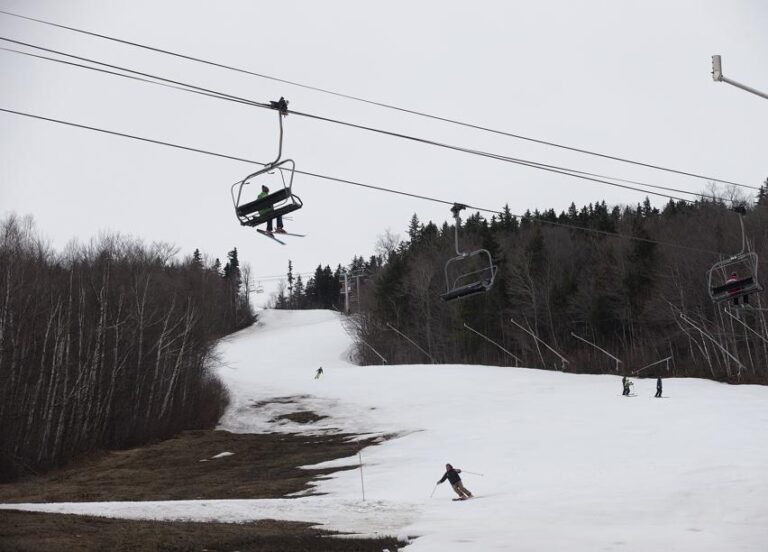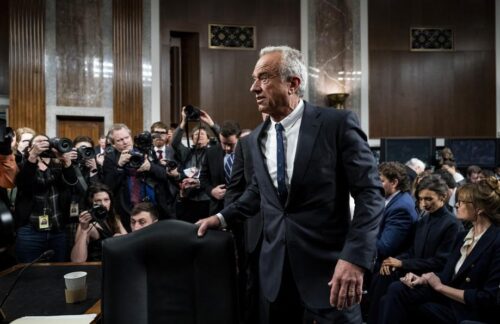It’s rare, you tell yourself as you board a ski lift. You have a better chance of being injured on the way down the hill. Or on the drive to the mountain. Or in the shower once you strip off your long johns.
But then your chair passes alongside a support tower, and the arm holding the chair to the cable rumbles as it goes over the little wheels, and your stomach drops, and it occurs to you that you are in a chair, in the sky, and it’s a long way down.
Fear of chairlifts is common in skiing. Accidents are not. But on Sunday, the unthinkable happened at Attitash Mountain Resort in Bartlett, N.H., when a man was injured after the chair he was riding on dislodged from the cable and fell 20 feet to the ground.
The man suffered a back injury, and the incident was blamed on “mechanical failure,’’ according to the State Fire Marshal’s Office, which is investigating the incident along with the state’s Passenger Tramway Safety Board. Attitash did not respond to an email query from the Globe. The injured man, who has not been named, has been released from the hospital.
But the accident highlighted the fact that the fear that exists in many skiers’ heads can occasionally become reality.
“When you feel that rumble of the wheels, it’s natural to get a little tickle in your tummy,’’ said John Pawlak, director of the ski school at Pats Peak, a popular learn-to-ski mountain in southern New Hampshire. “Which is why with new skiers, and even new staff, we always start by just watching the lift, admiring it, and asking questions, so they have a clear understanding of what goes on and don’t feel rushed or nervous.’’
According to a report from the National Ski Areas Association, there have been 14 fatalities stemming from mechanical malfunctions of lifts between 1973 and 2020. But the report states that only 2 percent of falls are from mechanical or operator failure; 86 percent are blamed on “passenger behavior.’’
The report goes on to point out that you are five times as likely to die on an elevator. But accidents do happen, and when they do, those who fear heights find fodder for their phobia.
In 2021, Blue Hills Ski Area in Canton had two lift accidents in a single week. A 7-year-old boy fell from a double chairlift, and a group of skiers became entangled in lift wires.
Sugarloaf Mountain in Maine had a pair of accidents a few years back. In 2015, a gearbox failed, causing a lift to suddenly move backward about 450 feet. Seven skiers were injured, many others jumped to the ground, and ski patrol had to use ropes to rescue 200 skiers and snowboarders who were left dangling in the air. And in 2010, a lift at Sugarloaf derailed, causing several chairs to slam into the ground and injuring eight people who fell 25 feet.
But while New England ski lift accidents remain rare, already this ski season there have been a few dangerous incidents at resorts in the United States and Europe, according to the website liftblog.com, which tracks the ski lift industry.
In the Spanish Pyrenees last month, at least 30 skiers were injured when the large wheel at the top of the lift detached, causing the cable to lose tension and slam many chairs into the ground. At Winter Park Resort in Colorado in December, a component on a support tower snapped, and 174 people had to be roped down from dangling gondolas. Also in December, a quad chair slid backward down the cable at Heavenly Ski Resort in California, slamming into the chair behind it and injuring five people.
Perhaps the most publicized ski lift accident in recent years happened in 2018 in the nation of Georgia, when terrifying videos captured a ski lift racing backward at high speed, with the chairs piling into one another at the base. Many skiers were thrown off, while others jumped at the urging of people on the ground, who frantically rushed in to drag them out of the way before the next chair arrived.
Attitash, like Heavenly in California, is owned by Vail Resorts, which controls 42 resorts across the globe and has come under heavy criticism from some skiers as it has marched into the New England market in recent years. Since 2017, the Colorado-based company has purchased New Hampshire’s Mount Sunapee, Wildcat Mountain, Crotched Mountain, and Attitash, as well as Vermont’s Mount Snow and Stowe Mountain Resort.
The company, which also sells the Epic Pass, which gives skiers unrestricted access to multiple resorts, has been accused of increasing the cost and crowds at ski resorts while failing to properly support its employees and infrastructure. In December, the ski patrol at Park City Mountain Resort in Utah went on strike over a wage dispute, upending the country’s largest ski resort during the popular holiday season.
At Attitash, the company received kudos for building a new high-speed four-person lift, the Mountaineer, that opened last season, cutting travel time to the summit by half. But the lift that was the scene of Sunday’s accident, a high-speed quad built in 1995 called the Flying Bear, remained closed on Monday.
Billy Baker can be reached at billy.baker@globe.com.


